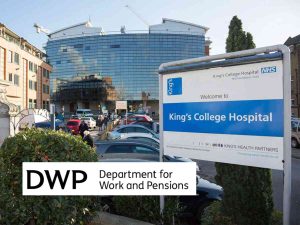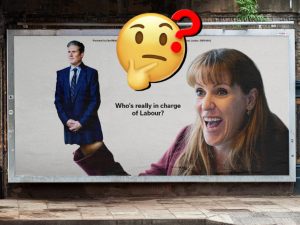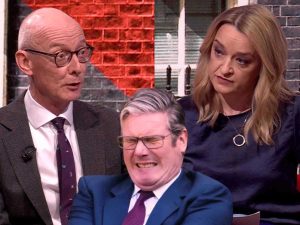Conservative leader Rishi Sunak and prime minister Keir Starmer are part of the same duo. Sunak opened Prime Minister’s Questions (PMQs) on Wednesday 4 September with a false choice of ‘workers or pensioners’:
Mr Speaker, government is about making choices. And the new prime minister has made a choice. He has chosen to take the winter fuel allowance away from low income pensioners and give that money to certain unionised work forces in inflation busting pay rises… why did he choose train drivers over Britain’s vulnerable pensioners?
To be sure, train drivers are paid a significant amount, at an average of £59,189 per year. That shows in part what a unionised workforce can achieve.
But Starmer could both raise worker pay and maintain the winter fuel allowance. Even a small wealth tax of 1-2% on assets over £10m would rebalance the UK economy to a less unequal place by up to £22bn per year.
Of course, Sunak doesn’t mention this. Him and his wife’s personal fortune rose to £651m in 2024, up by a staggering £122m from 2023.
PMQs: another year, another charade
At PMQs, Starmer responded:
Mr Speaker, this government was elected to clean up the mess left by the party opposite… Our first job was to audit the books. And what we found was a £22bn black hole. It’s no good them complaining…we’ve had to take tough decisions to stabilise the economy
There is another element of the political charade on show here. The Institute for Fiscal Studies (IFS) already informed people of the funding gap back in March. The IFS said both Labour and the Tories were engaged in a “conspiracy of silence” over the £22bn ‘black hole’. So it’s utterly performative that Starmer ‘discovered’ the finances upon entering government.
The ‘tough decisions’ Starmer has taken are shameless. As the Canary’s Hannah Sharland reported, charity Age UK calculated that the winter fuel payment cut for will impact 800,000 pensioners on very low incomes. That’s single pensioners on less than £218.25 a week or couples on £332.95.
But of course, Starmer doesn’t care. Potentially because 61% of over 70s voted Tory or Reform in the 2024 election, while Labour did offer no real alternative. Only 20% voted Labour. So now they must choose between heating and eating, rather than issuing a small tax rise on the super rich.
New research from the Tax Justice Network has taken down the myth that the super rich will leave if we tax them more. When there were marginal increases in the wealth tax in Norway, only 30 out of 236,000 billionaires and millionaires in the country relocated.
Starmer later during PMQs further defended the winter fuel allowance cut by quoting the Tory shadow housing minister, Kemi Badenoch. That’s as if the policy is merely sensible austerity, rather than targeting of the vulnerable. It shows more of the Tory and Labour collaboration.
He said:
When it comes to winter fuel payments… his shadow housing minister… she said…’I have people in my constituency telling me they don’t need winter fuel payments, why don’t we have a more sophisticated mechanism for means testing?’
The duo: what Tory and Labour agree on
Starmer and Sunak agree on a lot more than they disagree on. Given these are areas of widespread political dispute elsewhere, this what makes them a duo rather than a force of opposition:
- Privatisation: both party leaderships agree on keeping public services like water and energy in private hands. Labour have pledged to nationalise the rail services, but this does not even include the trains themselves that we will still rent from rolling stock companies.
- Austerity: Labour is not reversing the 14 years of Tory austerity. Education is one example. Since 2010, 70% of state schools have faced real term cuts of £12.2bn.
- Military spending. Both Labour and Tory pledged a 2.5% increase in military spending.
- Israel and Palestine. Both Labour and Tory support arms sales to Israel, with Labour suspending only 8.5% of licenses.
These are just a few things both major parties agree on.
Featured image via The Telegraph – YouTube




